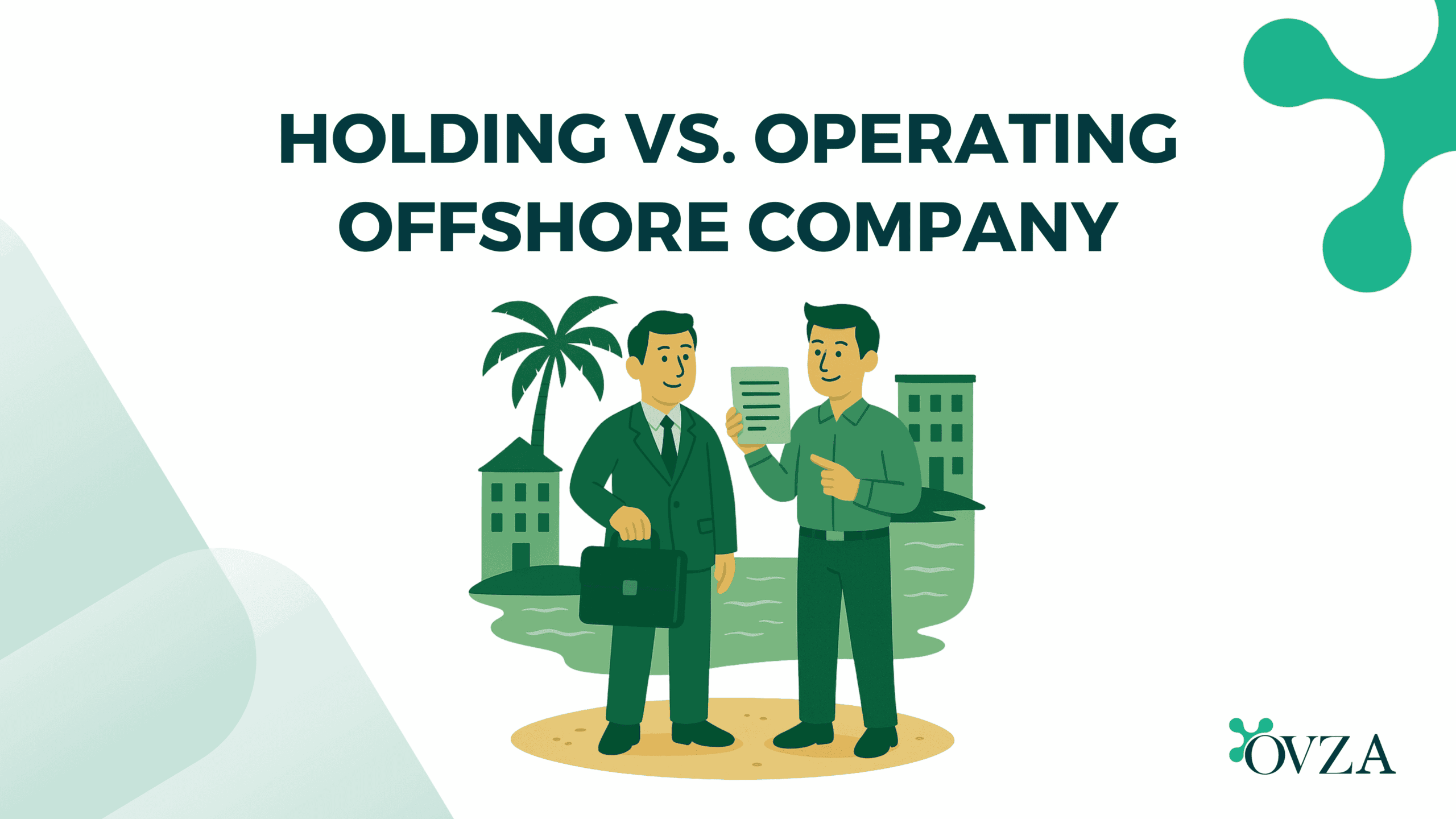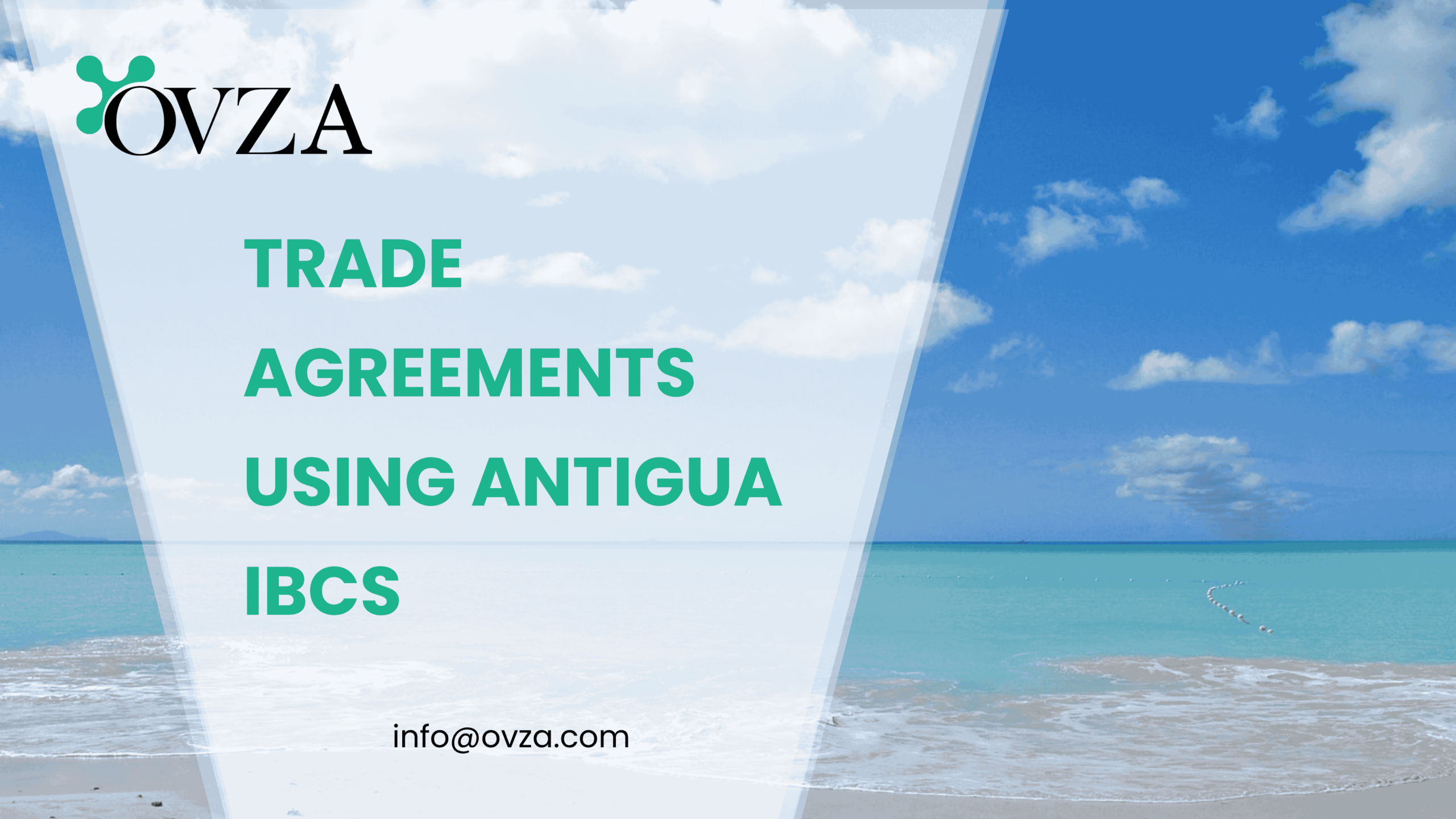The classification of offshore companies as either Holding vs. Operating Offshore Company entities is a foundational distinction in international corporate law, with significant consequences for tax treatment, regulatory compliance, and legal risk exposure. As governments and supranational bodies tighten controls on cross-border economic activity, the formal purpose and functional activities of an offshore entity are increasingly scrutinized under anti-avoidance rules, economic substance regulations, and information exchange frameworks.
A holding offshore company is primarily established to hold shares or assets of subsidiaries or affiliated companies, often with no substantial commercial operations of its own. These entities are commonly domiciled in jurisdictions such as the British Virgin Islands, Cayman Islands, or Luxembourg, selected for their favorable holding company regimes, including participation exemptions, capital gains tax relief, and efficient dividend withholding tax treaties. The purpose is asset protection, intercompany dividend aggregation, or facilitating mergers and acquisitions. Legal scholars and practitioners often refer to these entities when analyzing the OECD’s Base Erosion and Profit Shifting (BEPS) framework and the corresponding need for demonstrating economic substance.
In contrast, an operating offshore company is engaged in active commercial business such as sales, manufacturing, or service delivery from a foreign jurisdiction.
Tax, Compliance, and Legal Ramifications Across Selected Offshore Jurisdictions
The classification of an offshore entity as a holding or operating company has significant implications under international tax law, corporate compliance regimes, and anti-avoidance frameworks. These distinctions are increasingly shaped by global enforcement standards, including the OECD/G20 Inclusive Framework on BEPS, the Common Reporting Standard (CRS), and regional directives such as the EU Economic Substance Requirements. The application of these frameworks varies depending on the regulatory posture of the jurisdiction in which the entity is established.
In Belize, St. Vincent and the Grenadines, the British Virgin Islands, and the Cayman Islands, entities structured for holding purposes typically benefit from tax neutrality, the absence of capital gains taxes, and exemption from withholding on intercompany dividends. These jurisdictions have been historically favored for their corporate privacy provisions, minimal reporting obligations, and flexible shareholding arrangements. However, all have adopted measures in line with the OECD’s Forum on Harmful Tax Practices, including economic substance legislation for certain categories of entities.
In the British Virgin Islands, for example, the Economic Substance (Companies and Limited Partnerships) Act, 2018 defines holding business as a relevant activity, but provides for reduced substance requirements in cases of pure equity holding. Similarly, the Cayman Islands enforces Economic Substance Regulations requiring holding companies to demonstrate adequate local presence through registered office, directorship, and annual reporting—even when no income is generated locally. These rules now limit the use of passive holding vehicles for aggressive tax planning purposes.
By contrast, jurisdictions such as St. Lucia, Seychelles, and Vanuatu have emerged as venues for active business operations, particularly in the services and digital commerce sectors. These jurisdictions have adopted regulatory frameworks that distinguish between passive income-generating entities and those engaged in trading, consultancy, and technology-based operations. In St. Lucia, companies carrying on relevant activities must comply with the Income Tax (Economic Substance) Act, which mandates core income-generating activities be conducted within the jurisdiction and prescribes penalties for non-compliance.
In Seychelles, the Beneficial Ownership Act and related AML frameworks impose stringent obligations on operating companies, requiring ongoing disclosure of natural persons exercising control over corporate entities. Vanuatu has implemented similar mechanisms aimed at preventing misuse of legal persons for tax evasion or financial crime, including obligations related to accounting record-keeping and entity classification under economic substance rules.
Operating companies in these jurisdictions are more likely to establish a permanent establishment under the principles set out in Article 5 of the OECD Model Tax Convention, particularly where there is physical infrastructure, employees, or active commercial solicitation in third countries. This, in turn, may trigger corporate income tax liability in foreign jurisdictions under controlled foreign corporation (CFC) legislation, such as the U.S. Subpart F and GILTI regimes or the UK CFC rules under Part 9A of the Taxation (International and Other Provisions) Act 2010.
The compliance burden is therefore considerably higher for operating offshore companies, which are subject to regulatory oversight not only at the place of incorporation but also in the jurisdictions where business activity is effectively carried out. Holding entities, while often enjoying streamlined governance, must also navigate international disclosure requirements, including the Global Forum on Transparency and Exchange of Information for Tax Purposes, to maintain treaty eligibility and avoid classification as non-cooperative entities.
The selection of jurisdiction must now account not merely for fiscal benefits but also for the legal capacity of the structure to meet substantive compliance expectations.
Corporate Governance, Risk Exposure, and Regulatory Trends Holding vs. Operating Offshore Company
Corporate governance frameworks, liability exposure, and regulatory trends vary substantially between holding offshore companies and operating offshore companies. These distinctions impact the legal characterization of the entity, its obligations to financial institutions, and its vulnerability to civil, administrative, or criminal enforcement actions.
Holding companies, by design, engage in minimal activity beyond ownership of equity interests in subsidiaries or other investment vehicles. As a result, they typically maintain simplified governance structures, with minimal or no employees, few contracts, and limited operational risks. From a legal standpoint, these entities are often utilized to consolidate group ownership, facilitate dividend routing, or structure intercompany loans. However, despite their passive nature, holding companies are increasingly subject to substance requirements that impose reporting obligations, especially in jurisdictions implementing OECD BEPS Action 5 standards.
In the British Virgin Islands, for example, holding companies are classified as engaging in a “relevant activity” under the Economic Substance Act, and must file annual returns with the International Tax Authority. Similarly, the Cayman Islands’ Economic Substance Reporting Portal requires registered entities to declare their business classification and provide supporting documentation, even if the entity is a passive equity holder.
In contrast, operating offshore companies encounter a more complex legal environment. Because these entities are engaged in active business—such as trading, consulting, or technology services—they are exposed to operational liabilities, contractual disputes, intellectual property concerns, labor law compliance, and jurisdictional tax exposure. Their governance structures must support day-to-day business decisions, supply chain oversight, and regulatory filings. In jurisdictions such as Seychelles, St. Lucia, and Vanuatu, entities operating in international services, digital markets, or high-risk sectors are subject to additional AML/CFT scrutiny, particularly when engaging in cross-border transactions.
The legal implications extend to banking and finance as well. Banks conducting due diligence under Basel III standards or FATF-aligned AML rules require enhanced transparency from operating companies, often insisting on source of funds documentation, transactional history, and evidence of operational substance. Holding companies, though still required to disclose beneficial ownership and tax status, often face lower barriers to account opening when structured properly and maintained in a recognized jurisdiction with updated compliance legislation.
From a dispute resolution standpoint, operating companies are more likely to become parties to international arbitration or litigation, particularly under bilateral investment treaties (BITs), international commercial contracts, or licensing agreements. Jurisdictions such as St. Lucia and Vanuatu maintain offshore arbitration frameworks compatible with the New York Convention on the Recognition and Enforcement of Foreign Arbitral Awards, which further supports legal certainty for cross-border contracting.
Recent legal developments reflect a convergence of treatment between holding and operating companies, especially as supranational bodies continue to close gaps in tax arbitrage and regulatory evasion. The implementation of the OECD’s Global Minimum Tax (Pillar Two) and UN Tax Convention proposals signal further alignment in how income is taxed at the group level, with less deference given to corporate form or jurisdictional election. Operating companies, in particular, may be directly affected by the imposition of Qualified Domestic Minimum Top-up Taxes (QDMTTs) if their effective tax rate falls below the global floor.
Entities classified as holding companies, on the other hand, may be indirectly impacted by adjustments to group-wide effective tax rates and new reporting obligations under frameworks such as the Country-by-Country Reporting (CbCR) standards. These developments affect corporate structuring decisions, with an increasing emphasis on legal substance, cross-border coherence, and governance transparency.
Practical Distinctions in Offshore Use
Once the theory of holding and operating offshore companies is understood, the next step is to look at how these entities differ in day-to-day application. A holding offshore company is usually passive, created to safeguard assets, consolidate ownership, or manage shares in subsidiaries. Its compliance burden and tax exposure are minimal, making it cost-efficient for long-term structuring.
An operating offshore company, on the other hand, is engaged in active trade, service provision, or financial activity. Because of this, it attracts greater regulatory attention, stricter substance requirements, and often more complex governance. These differences are not just academic, they directly impact taxation, banking access, and risk management.
The below chart outlines these contrasts in a clear format, allowing you to see how each type of offshore company functions under different legal and practical conditions.
| Aspect | Holding Offshore Company | Operating Offshore Company |
| Primary Function | Ownership of shares or assets in subsidiaries or affiliated entities | Active commercial activities such as trade, services, or manufacturing |
| Jurisdictions Commonly Used | BVI, Cayman Islands, Belize, St. Vincent and the Grenadines | St. Lucia, Seychelles, Vanuatu |
| Economic Substance Requirements | Typically reduced or minimal; limited to registered office and filings | Extensive; may include local management, physical presence, and employees |
| Taxation | Often tax-neutral; exempt from income and capital gains tax | May qualify for incentives but subject to local and international tax rules |
| Compliance Burden | Light reporting; focused on annual returns and beneficial ownership | Higher; includes accounting, tax filings, AML/CFT compliance, and substance tests |
| Beneficial Ownership Disclosure | Required in most jurisdictions | Required; often more scrutinized due to active operations |
| Transfer Pricing Exposure | Generally low or none | High; intercompany transactions must follow arm’s-length principles |
| Permanent Establishment Risk | Low; unless management/control is exercised elsewhere | High; especially where business is conducted across borders |
| Banking Requirements | Moderate; source of funds and ownership structure reviewed | Enhanced due diligence; proof of business activity and financial history often required |
| Legal Risk Profile | Limited; passive holding entails lower operational exposure | Elevated; subject to contractual liability, regulatory audits, and enforcement |
| Governance Needs | Minimal; often one or two directors with limited activity | Complex; requires structured governance to support operations |
Conclusion
The legal distinction between holding and operating offshore companies is not merely functional—it is a defining factor in tax treatment, regulatory exposure, and compliance obligations. While holding companies continue to serve as tools for corporate structuring and asset protection, their effectiveness is now circumscribed by substance legislation and transparency mandates. Operating companies, by contrast, face a more extensive set of regulatory obligations but may benefit from jurisdictional tax incentives and operational flexibility when properly structured and compliant.
Jurisdictions such as Belize, St. Vincent and the Grenadines, BVI, and the Cayman Islands maintain frameworks that support passive holding structures under economic substance regimes. Meanwhile, St. Lucia, Seychelles, and Vanuatu are increasingly structured to host operational business activity, provided that legal substance and compliance thresholds are met.
Global enforcement of anti-avoidance measures, minimum tax rules, and corporate transparency standards now necessitates a jurisdictionally grounded approach to offshore structuring. The legal risks and regulatory obligations attached to each form must be evaluated in light of domestic and international law, ensuring that corporate structures are not only tax-efficient but also legally defensible and compliant with prevailing standards.
Disclaimer: The information provided on this website is intended for general reference and educational purposes only. While OVZA makes every effort to ensure accuracy and timeliness, the content should not be considered legal, financial, or tax advice.










